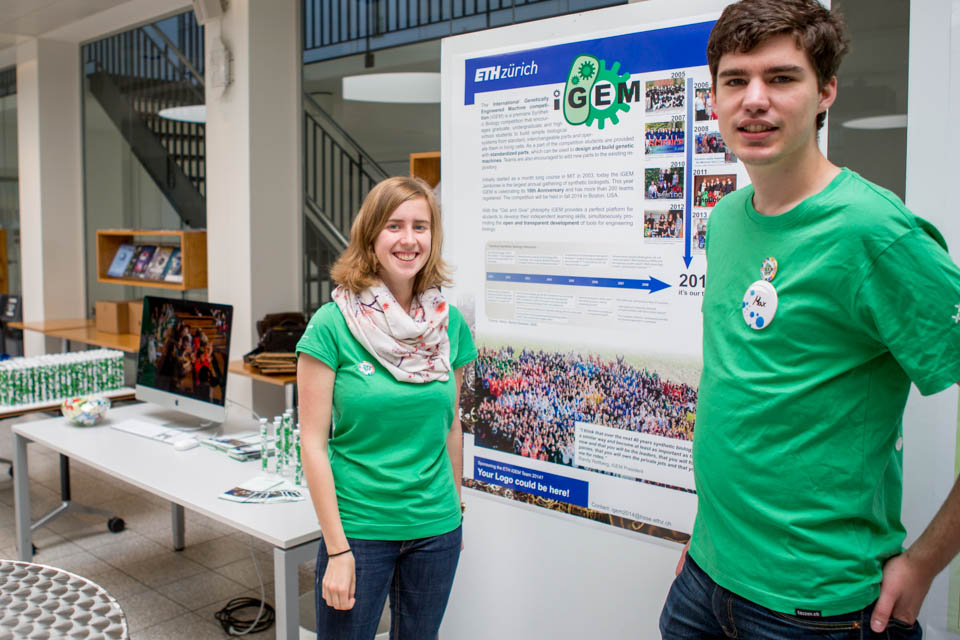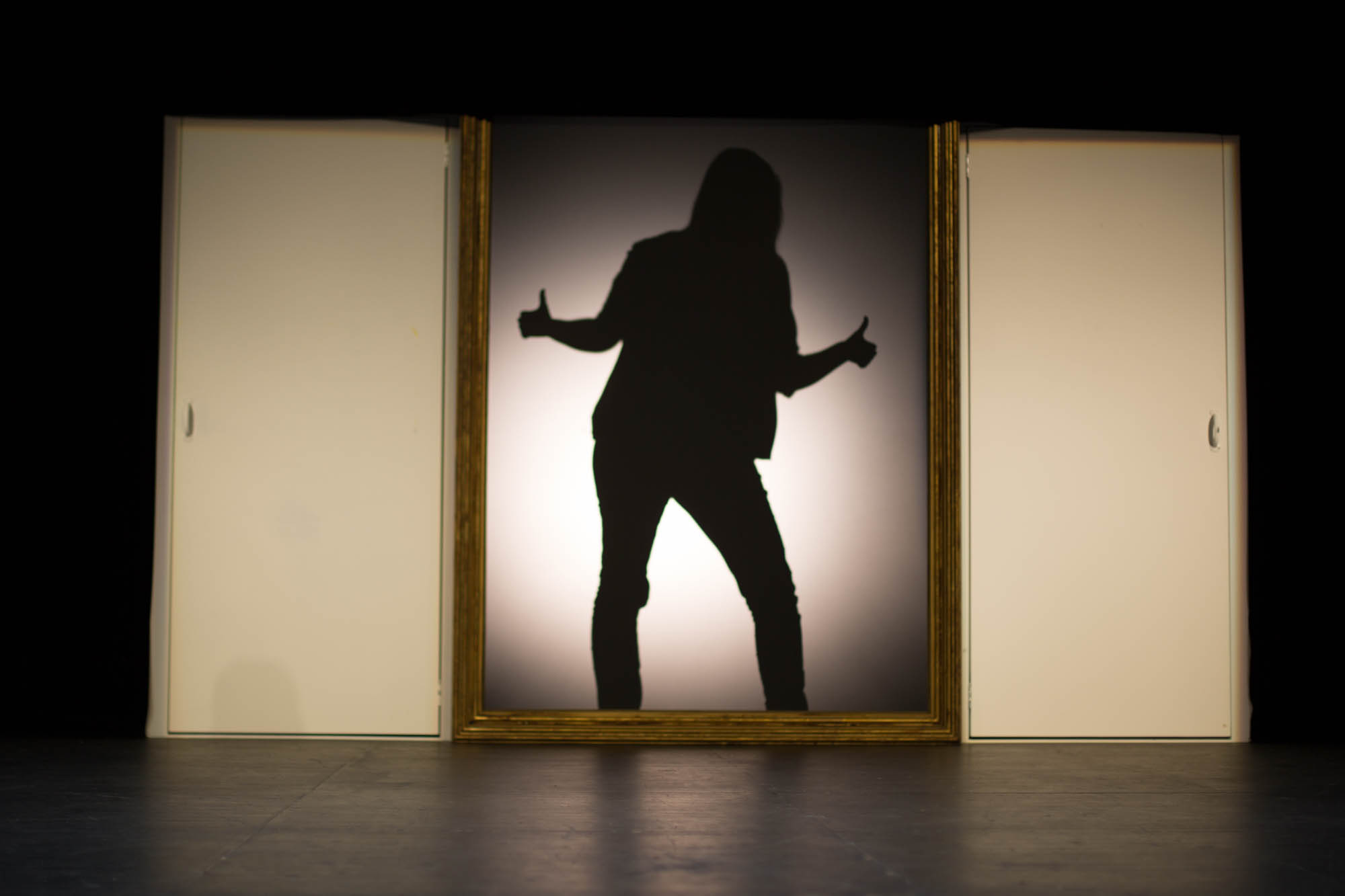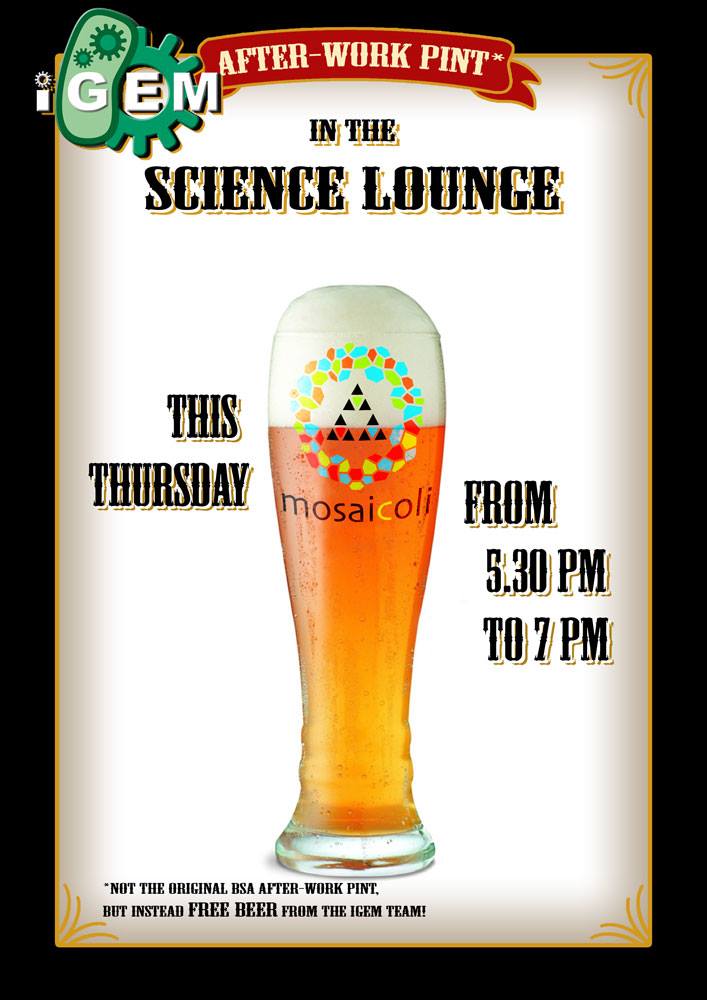Team:ETH Zurich/human/outreach
From 2014.igem.org
(→Discourse at the after work pint) |
(→School visits) |
||
| Line 8: | Line 8: | ||
<html><article></html> | <html><article></html> | ||
==School visits== | ==School visits== | ||
| - | One side of our human practice is to share knowledge with the public. For this reason one day mid-October Stefanie and Nadine had the chance to teach students at the age of 16- | + | One side of our human practice is to share knowledge with the public. For this reason one day mid-October Stefanie and Nadine had the chance to teach students at the age of 16-17 years at a high school in Bern, Switzerland. Through these lectures, we attempted to impart the basic principles of synthetic biology and encouraged the students to participate in a discussion of the concepts presented. In these discussions we tried to focus on risks to humans, health, the environment and the public. Furthermore former iGEM projects were quickly outlined and their possibilities and potential discussed. |
Thus, we increase the level of awareness of synthetic biology and simultaneously teach them how to approach complex problems. | Thus, we increase the level of awareness of synthetic biology and simultaneously teach them how to approach complex problems. | ||
Revision as of 00:12, 18 October 2014
Outreach
School visits
One side of our human practice is to share knowledge with the public. For this reason one day mid-October Stefanie and Nadine had the chance to teach students at the age of 16-17 years at a high school in Bern, Switzerland. Through these lectures, we attempted to impart the basic principles of synthetic biology and encouraged the students to participate in a discussion of the concepts presented. In these discussions we tried to focus on risks to humans, health, the environment and the public. Furthermore former iGEM projects were quickly outlined and their possibilities and potential discussed. Thus, we increase the level of awareness of synthetic biology and simultaneously teach them how to approach complex problems.
Open house day at the department
On the open house day held by D-BSSE, ETHZ ([http://www.bsse.ethz.ch Department of Biosystems Science and Engineering]) and the [http://www.biozentrum.unibas.ch Biozentrum] the University of Basel the public could get an idea of the scientific laboratories and the work done there. Many labs opened their doors to the public and the scientists briefed them about their daily work. We as the ETHZ iGEM team 2014 also used this platform to talk about iGEM. The team was present with a poster showing the history of iGEM, explaining the projects of previous ETHZ iGEM teams and general information about synthetic biology. Additionally, we presented a collection of photos from previous years jamboree. The goal of this day was to inform the public about synthetic biology in general and specifically about the spirit and the projects of iGEM. Many people showed great interest and have been following the project developments during the course of the project through our wiki.
Science Slams
A science slam is all about presenting scientific work to a diverse group of people in a short time, in an understandable and entertaining way.
Elise from our team has participated in two science slams. She has given her best to explain about iGEM and our project. Her task is to simplify our complex project to make it comprehensible and catchy. The first one was in Brugg AG for the Open Door day of the Fachhochschule Nordwestschweiz. The audience mainly consisted of families. The second science slam was at the theater in Basel on October 10th: you can watch the video here. The audience mainly consisted of Bachelor and Master students, interested scientists and families. This last event was covered by the media : [http://www.telebasel.ch/de/tv-archiv/&id=366875892&search=&datefrom=&dateto=&group= TeleBasel] and BAZ.
iGEM ETH Zurich 2014 and social media
Today’s society relies more and more on the internet. Since, a vast group of people today widely use Social media for communication, we decided to use [http://www.facebook.com/iGEM.ETH.Zurich?fref=ts Facebook] and Twitter [http://twitter.com/ETH_iGEM twitter] to share our results, news and updates. This enabled us to reach a large group of people almost instantaneously. Both accounts refer to our wiki where more background information can be found. We think sharing the news of our project on social media increases the attention given by people to synthetic biology. We observed that for many people, the curiosity increased after seeing a post or a picture with a short description of what we had done on Facebook. We also shared fascinating videos presented by other teams and links to their wikis. Thus, we were able to increase the overall awareness of synthetic biology and iGEM.
Discourse at the after work pint
D-BSSE hosts a weekly after work pint where scientists from different groups meet up to discuss work in a relaxed environment. In one of these weekly after work pint we spoke about our project and iGEM. We took advantage of the informal environment to discuss our ideas with scientists of the department. We received encouraging and supportive feedbacks and some very useful advice and suggestions.
Interview with NZZ campus
By the end of October an article about dealing with criticism related to the subject of study will appear in the [http://campus.nzz.ch NZZ campus]. The article will be based on an interview with one of our team members, Stefanie. In the interview Stefanie attempted to address the fears, ignorance or prejudices that are often associated with synthetic biology and microbiology and tried to emphasise on the importance of these fields. We believe that it is important to seek a constructive dialogue to increase awareness of biotechnology.
Simplifying our wiki for the public
Simplify buttons...
 "
"
















